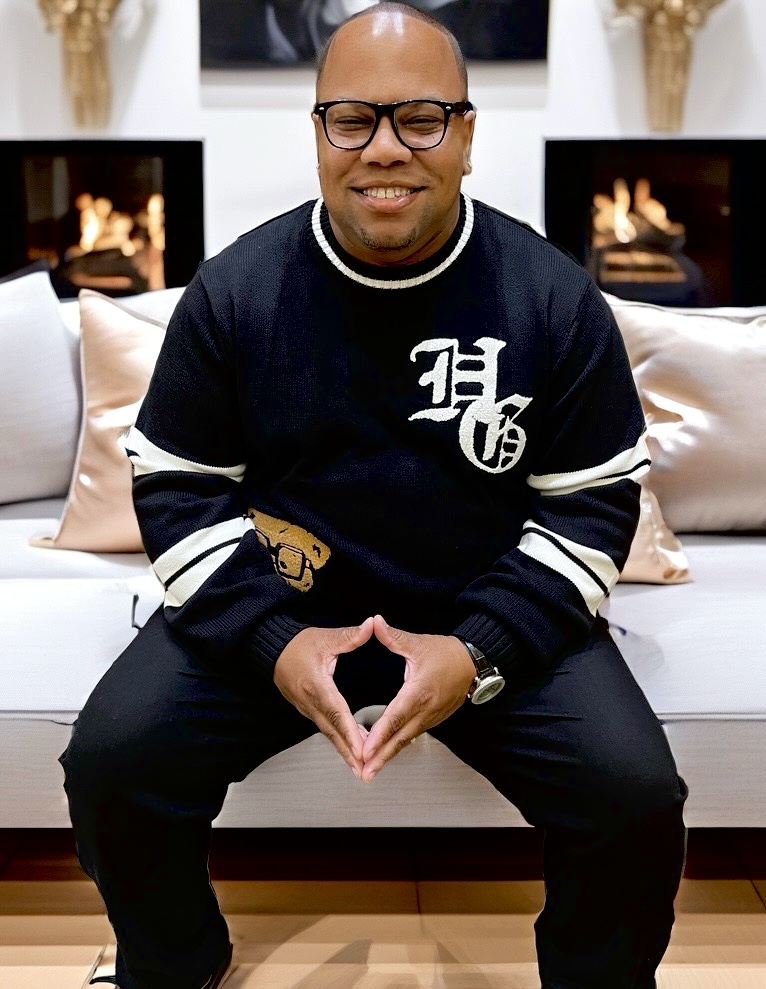

We recently had the chance to connect with Roy L. Jackson Sr. and have shared our conversation below.
Roy L. , a huge thanks to you for investing the time to share your wisdom with those who are seeking it. We think it’s so important for us to share stories with our neighbors, friends and community because knowledge multiples when we share with each other. Let’s jump in: What’s more important to you—intelligence, energy, or integrity?
If I were to weigh the three—intelligence, energy, and integrity, I would have to place integrity at the summit. Integrity is the invisible thread that holds together the visible fabric of character. It is what a person is when no eyes are watching, and no applause is waiting. Without integrity, intelligence becomes manipulation and energy becomes chaos. Intelligence can discern the pathway, and energy can push the pace, but integrity determines whether the destination is worth arriving at. A brilliant mind without moral restraint is like a powerful car without brakes, it may look impressive in motion, but it’s destined for disaster.
The story was once told of a skilled architect who designed bridges that drew admiration across the land. His intelligence was unmatched, his energy relentless, and his reputation glittered with success. But one day, a bridge he designed collapsed, taking lives with it. When the investigation concluded, they discovered that he had substituted cheaper materials to save costs. His mind was sharp, his work ethic fiery, but his integrity was fractured. And when integrity breaks, everything built upon it eventually crumbles.
This particular story teaches each of us a deeper psychological truth: the human spirit cannot bear the weight of its own brilliance without the balance of honesty. Intelligence can open doors, energy can move mountains, but only integrity ensures that when you walk through those doors or climb those mountains, your soul remains intact. A person without integrity may climb high—but they do so on a ladder leaning against the wrong wall. Therefore, the wisest investment of your life is not just in what you know, nor in how hard you work, but in who you are when no one but God is watching.
Can you briefly introduce yourself and share what makes you or your brand unique?
I am Roy L. Jackson Sr.; a voice committed to awakening the deeper dimensions of both the mind and the spirit. At my core, I am not merely an educator or a musician—I am a transformational architect of thought and purpose. My work lives at the intersection of education, theology, and human psychology, where I strive to help people see that learning is not simply the transfer of information, but the transformation of identity.
As a husband to Kristi Rena Jackson and father to Roy Jr., Ty’Keyana, and Skye Jackson, my life’s purpose is anchored in legacy. I have come to believe that true impact begins not on the platform, but at the dinner table, where integrity is taught, love is modeled, and destiny is nurtured.
Through years of academic pursuit and musical expression, I have discovered that education and art share a psychological heartbeat: both possess the power to restructure the human narrative. Whether I am conducting a seminar for teachers, performing a jazz composition, or delivering a keynote to inspire leaders, my aim is always the same—to stir the human soul into remembering its own potential. My workshops and lectures are intentionally designed as experiential journeys, not events, immersive encounters where educators are not simply trained but transformed; where classrooms become sanctuaries, and pedagogy becomes purpose.
What makes my brand distinct is its synthesis of exegetical depth and contemporary relevance. I weave the wisdom of the ancients with the language of today, bringing clarity to complexity and meaning to method. My approach bridges psychology, spirituality, and scholarship in a way that reaches both the intellect and the inner life—helping people not only to know more, but to become more.
From the concert hall to the classroom, from Houston to universities across the nation, my mission remains consistent: to ignite the sacred flame of purpose in every educator, artist, and learner I encounter. Because in the end, teaching is not about producing competence, it’s about awakening consciousness. And that, I believe, is where true transformation begins.
Great, so let’s dive into your journey a bit more. Who were you before the world told you who you had to be?
Before the world told me who I had to be, I was simply a soul searching for significance—a young man with an unrefined gift and an unguarded heart. I was not yet burdened by expectation or confined by the titles that now trail behind my name. I was merely becoming. I had passion without process, zeal without wisdom, and talent without temperance. I chased applause before I learned to value authenticity. Somewhere between the applause and the assignments, I lost touch with the sacred simplicity of who I was before the world handed me its definition of success.
In my youth, I forsook the exegetical depth of my reach—the very spiritual and intellectual call that burned within me. I tried to fit into boxes I was never designed to occupy, trading revelation for recognition. But grace has a way of calling us back to ourselves. Through my academic journey—from earning my associate degree in paralegal technology, my certificates in Law Office Assistance and Law Office Clerkship, to obtaining my bachelor’s and master’s degrees in criminal justice and now pursuing my second master’s in strategic communication—I have come to understand that education without transformation is information misplaced. Knowledge gave me language, but ministry gave me meaning.
As a minister and proud member of Phi Beta Sigma Fraternity, Inc., I now realize that maturity is not measured by credentials, but by the capacity to manage what once controlled you. I have mastered the art of mastering my emotions—not because I am unshakable, but because I have learned to be still in the storm. There was a time when my temper spoke louder than my testimony, when my emotions wrote checks my character couldn’t cash. But as I grew, I learned that emotional discipline is spiritual warfare; it is the ability to stand still while everything in you wants to react.
It reminds me of the story of Jesus asleep on the boat (Mark 4:35–41). While the disciples panicked at the storm’s roar, Jesus rested in divine equilibrium. His peace was not the absence of chaos, but the presence of control. That moment taught me something vital: mastery is not the absence of emotion; it is the management of motion within emotion. Like Christ in the storm, I learned that when you know who you are, the waves can rage, but they cannot redefine who you are at your core.
So, who was I before the world told me who I had to be? I was becoming the man God always knew I could be. And through every failure, degree, and divine encounter, I’ve discovered that purpose is not found in the approval of men, but in the alignment of the soul. I am no longer performing for validation; I am living from revelation—no longer bound by who I was told to be, but free in who I was created to become.
What did suffering teach you that success never could?
Suffering taught me what success never could—that the soul grows deeper in the dark than it ever does in the light. Success taught me how to climb, but suffering taught me how to stand. It was during the pursuit of my master’s degree, while scholarship letters and accolades found their way to my inbox, that grief found its way to my doorstep. Within four years, I buried both of my parents, the very voices that once cheered me on from the sidelines of life. The same hands that held diplomas would later wipe away tears. And somewhere between the classroom and the cemetery, I discovered that pain can be a professor too, one that teaches lessons no university could ever offer.
Psychologically, suffering dismantles the illusion of control. It forces the mind to confront its limits and the heart to reimagine its capacity for endurance. It teaches emotional elasticity, the ability to bend without breaking, to weep without quitting. I learned that there are some lessons only loss can teach: humility, empathy, gratitude, and dependence on divine strength. Success had filled my resume, but suffering filled my soul. It stripped me of performance and forced me into presence. It taught me to value silence more than applause, prayer more than platform, and peace more than perfection.
When my parents passed, I thought a part of me died with them, but in truth, a part of me was born. I began to understand that maturity is not measured by how much you achieve, but by what you can endure without losing your identity. Theologically and psychologically, pain became my refiner’s fire. It burned away ego and left behind essence. It was in those lonely nights of study and sorrow that I realized: success introduces you to who the world sees, but suffering introduces you to who you truly are.
Now, every degree I hold is not just a symbol of achievement, it’s a testament of survival. Every accomplishment whispers “You made it through what was meant to break you.” Suffering taught me to live with depth, to love with empathy, and to lead with compassion. And while success once made me proud, suffering made me whole.
Sure, so let’s go deeper into your values and how you think. What’s a cultural value you protect at all costs?
The cultural value I protect at all costs is education—not merely as an institution, but as an impartation. Education, to me, is sacred; it is the modern-day pulpit through which truth, identity, and liberation are preached. In a world where statistics remind us that only about 2% of educators are African American men, every time I step into a classroom, I am not simply teaching a lesson, I am correcting a narrative. I carry the weight of representation, the responsibility of hope, and the rhythm of resilience. My presence in that space is not an accident; it is an assignment. Education, for me, is ministry in motion, it’s how I baptize young minds in the waters of purpose and raise them into the fullness of their potential.
As both an educator and a jazz musician, I have come to understand that staying true to your craft means staying faithful to your calling. Jazz, like education, demands authenticity; it is the art of disciplined freedom, structured enough to honor tradition, yet liberated enough to breathe innovation. To be faithful to either field requires a theological resolve: to remain steady through the cost, the climate, and the criticism. The cost reminds me that calling always demands sacrifice; the climate challenges me to adapt without abandoning my essence; and the criticism humbles me to remember that applause is seasonal, but purpose is eternal.
I have learned that in both the classroom and on the bandstand, the goal is not to be seen, but to be felt. Sight impresses, but sound influences. Jesus said, “He that hath ears to hear, let him hear,” because some truths are not meant to be viewed, they’re meant to be experienced.
Okay, we’ve made it essentially to the end. One last question before you go. If you knew you had 10 years left, what would you stop doing immediately?
If I only had ten years left, I would stop postponing purpose, stop waiting for the “right time” to do what my soul was created to do. Psychologically, we often live as if time were a renewable resource, as if we could bargain with eternity for an extension. But the truth is, time is not something we manage, it’s something we’re spending, whether we realize it or not. Every delay is a withdrawal from an account that will one day reach zero. I would stop overthinking and start overflowing. I would stop trying to perfect what was meant to be poured out.
I would no longer allow fear to disguise itself as preparation. I would no longer confuse being busy with being fruitful. Because busyness fills the calendar, but fruitfulness fills the soul. I would stop comparing my journey to others, recognizing that envy is the thief of both peace and progress. If I had ten years left, I would devote every breath to what gives life meaning: faith, family, purpose, and legacy. Great question, this really woke me up!!!
Contact Info:
- Instagram: @melodictheorist
- Linkedin: Roy L. Jackson Sr.
- Facebook: Roy L. Jackson Sr.
- Youtube: @RoyLJackson02
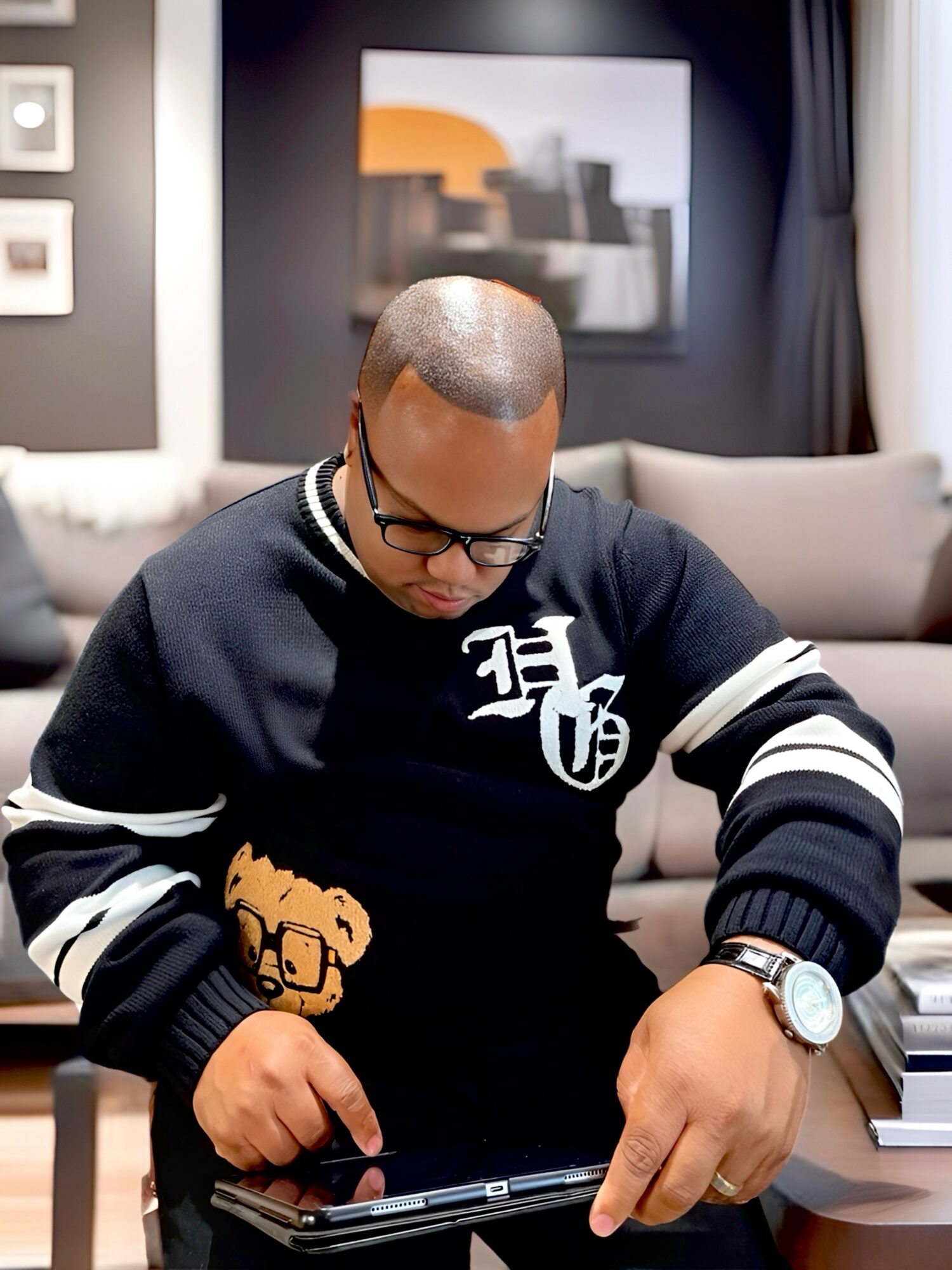
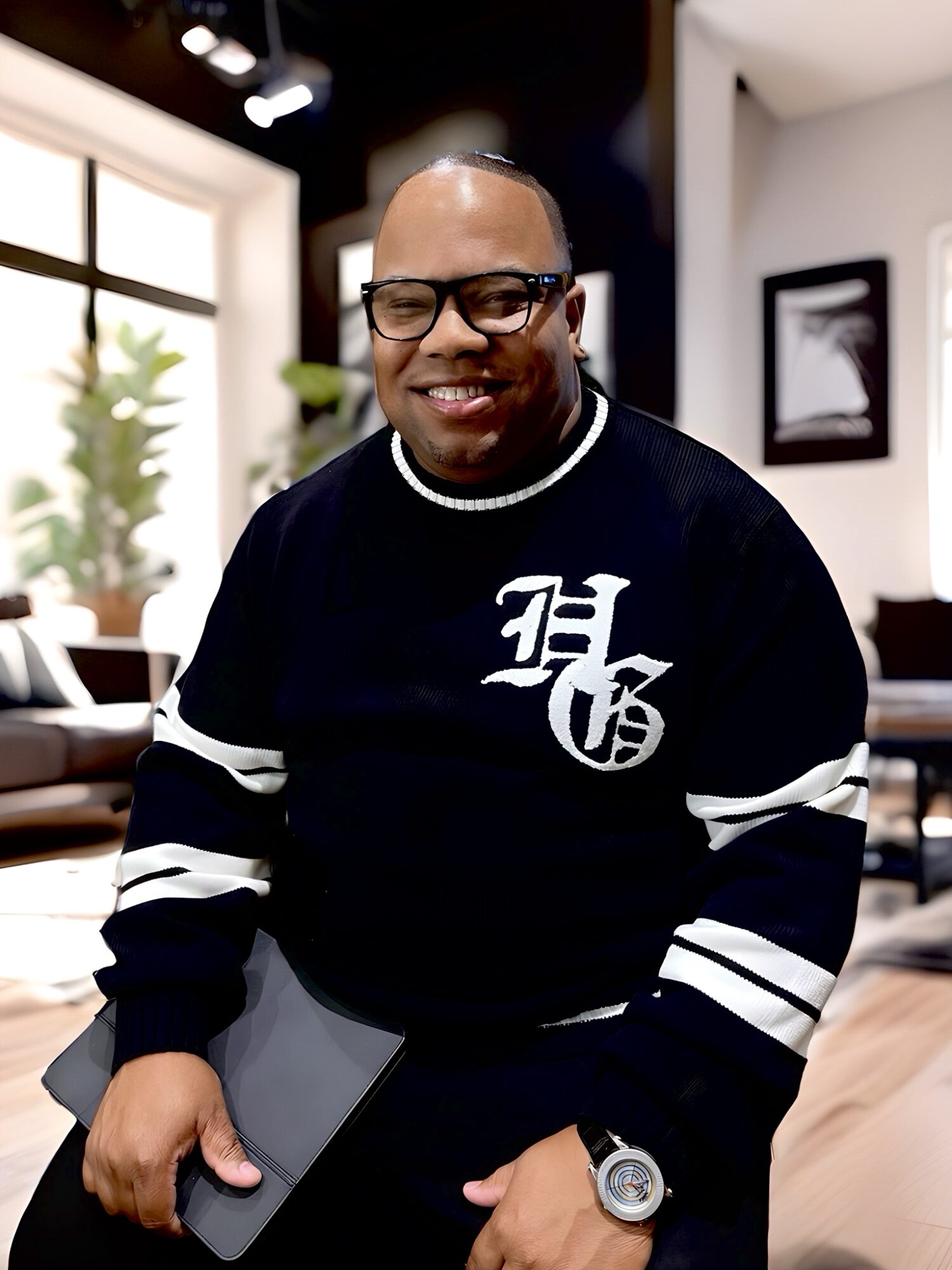
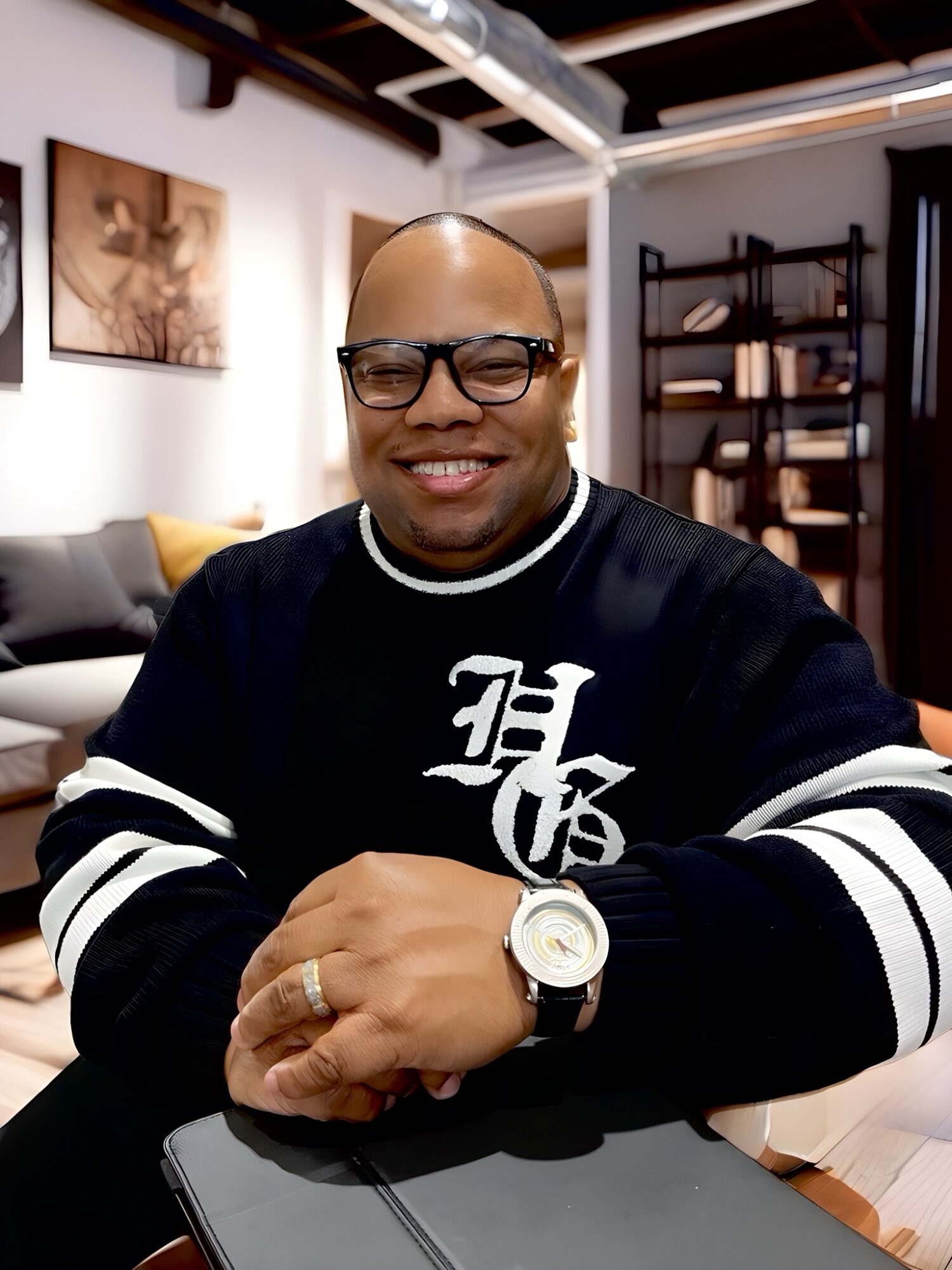
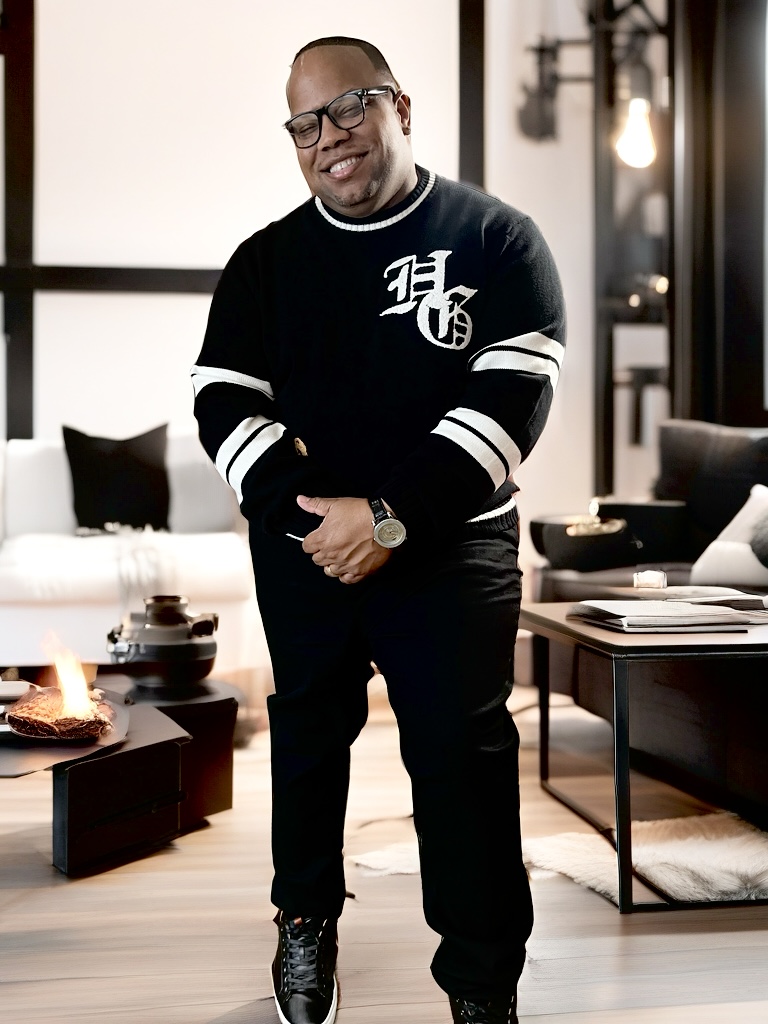

Image Credits
Courtesy of Melodic Theorist Productions










